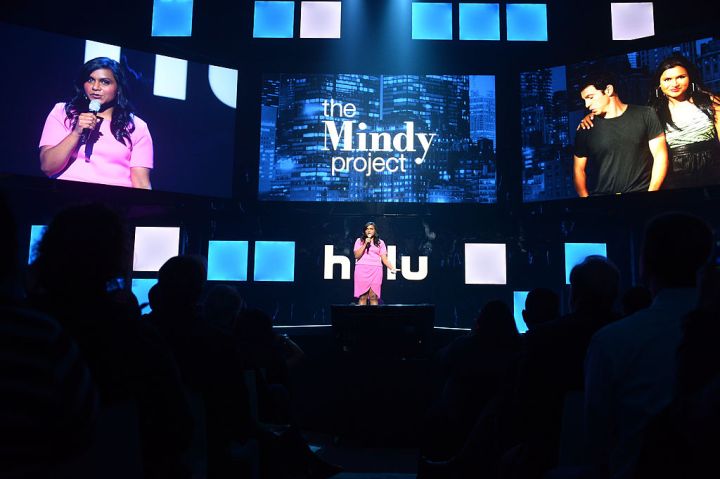
TV upfronts went virtual this year. Is that all that changed?
TV upfronts went virtual this year. Is that all that changed?

Most years, the TV upfronts are a week of big events in New York City where the networks present “sizzle reels” of their fall lineups and schmooze advertisers in the hopes of selling ad spots. But the pandemic interfered, leading many networks to cancel their formal presentations in 2020 and leading them to go completely virtual this year.
Are those the only changes? The upfronts have expanded over the years to include digital and targeted media. These days, there are upfronts for podcasts; upfronts for platforms like YouTube and Buzzfeed; and this year, the first-ever Black-Owned Media Upfronts.
“Marketplace” host Kai Ryssdal asked Aymar Jean Christian, a communications professor at Northwestern University, about the state of the upfronts, starting with whether they’ve become somewhat diluted by all of the new additions.
Aymar Jean Christian: They might have been diluted, but I think it was necessary. There’s no way that, in 2021, four networks were going to be able to carry the demand for high quality advertising placements. And so the upfronts had to expand. I think the NewFronts, when they started, were definitely a challenge to the upfronts. And now, it seems like both have been accepted as part of the same kind of broad, overall now probably two-month event.
Kai Ryssdal: Right. NewFronts, you should probably define that term, too.
Christian: The NewFronts are the digital equivalent of the upfronts. They started when companies like YouTube were trying to get advertisers to commit their big dollars to online advertising, which is delivered in a much different way than traditional advertising.
Ryssdal: So let me ask you about the actual delivery of content. So much of it now comes from streamers, right? Netflix, Disney Plus, Paramount Plus, I mean, take your pick. And I guess my question is, why do those companies need to lure advertisers?
Christian: So not all of them need to lure advertisers. Some of those companies have a combination of subscription and advertising. Discovery Plus has on-demand subscription programming, but you can also watch “House Hunters” live 24-7 with ad breaks through the Discovery Plus app, in the digital space. And in this new streaming universe, there’s an ever-diversifying array of options.
Ryssdal: I don’t know if I’m sticking around for “House Hunters” if I have to stick around through ads. That’s all I’m saying. I’ll watch it in one whack for 22 minutes, or whatever it is. We should also point out that we are now able – advertisers are able and also programmers – to target very specific audiences. There were [Black-Owned Media Upfronts] this year as well, right?
Christian: There were [Black-Owned Media Upfronts] with some of Byron Allen’s companies. There is Univision for Latinx content. It’s not really an upfront, but there’s a fan-driven queer upfront happening as well. So yes, diverse audiences are in this year. That’s kind of a new thing. But historically, through the NewFronts, you are getting some specific audiences well, fashion audiences, women’s publications. So this is I think part of a broader diversification of the upfronts that has been happening for several years now.
Ryssdal: Yeah. Just as a way to sort of play this forward a little bit, last year the upfronts were canceled because, obviously, the pandemic. This year, they were virtual. It’s not cheap to get all those television stars and TikTok stars and what-have-you stars to Radio City in New York or wherever they decide to hold them. Do you think they stay virtual and people just try to do the easy thing?
Christian: We will see. I think it’s going to be all about what the advertising haul is. For many decades, it was seen as necessary to bring people to New York to do the schmoozing, meeting the stars, in order to get those multibillion dollar commitments. If they can get those commitments at a lower price, they certainly need the money in a very competitive media landscape right now.
There’s a lot happening in the world. Through it all, Marketplace is here for you.
You rely on Marketplace to break down the world’s events and tell you how it affects you in a fact-based, approachable way. We rely on your financial support to keep making that possible.
Your donation today powers the independent journalism that you rely on. For just $5/month, you can help sustain Marketplace so we can keep reporting on the things that matter to you.











